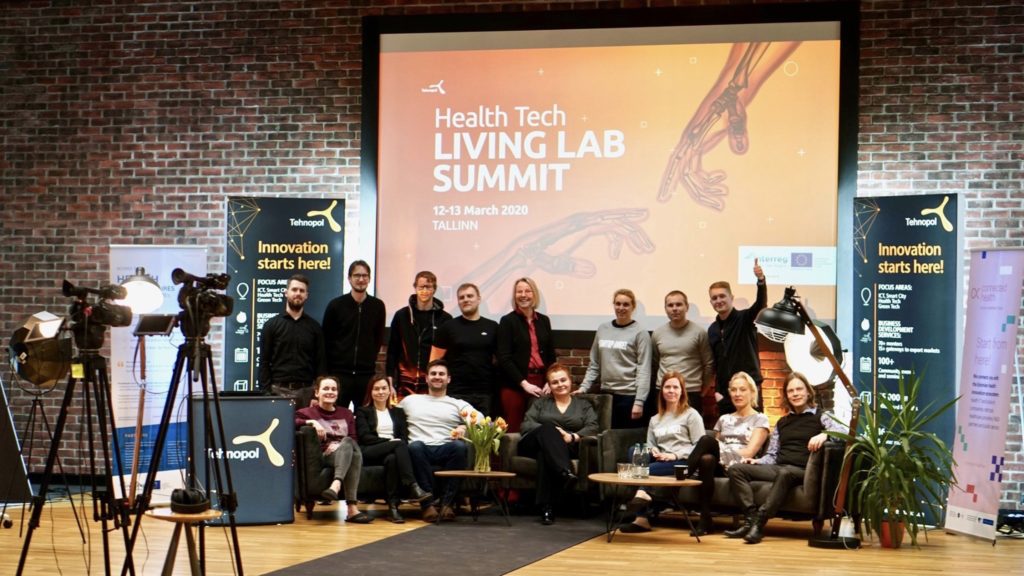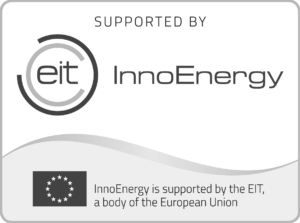16.03.2020
Digital solutions developed in Estonia – made in Estonia, used globally

Health tech experts and enthusiasts will gather in Tallinn on 13 March to discuss the challenges of creating innovative solutions in healthcare, how to test health tech solutions and what lessons have been learned from testing so far as well as how to make mutual collaboration more seamless.
According to Piret Hirv, Head of the Connected Health Cluster led by science and business campus Tehnopol, the healthcare sector generates many good ideas to improve people’s health or facilitate their lives. “These ideas and solutions have a hard time making it to end-users,” said Hirv. “In addition to funding issues, there are often problems with testing solutions.
We have great potential to deliver necessary digital solutions to people in healthcare. But there comes a time when technological solutions need to be tested in real life conditions to make sure such solutions will safely support us when we are ill and looking to improve our health.”
Estonia has reasonably good conditions for testing health tech: lively entrepreneurship, suitable and available testing environments. But there are also unanswered questions that should be agreed on. By bringing together different health tech parties, we can encourage discussion on the challenges facing innovation in healthcare and how to best facilitate seamless collaboration between parties.
“Improving international collaboration with regard to entering export markets will also be discussed,” said Hirv on the topics covered during the conference. “Have we been able to establish a network of international testing environments to be able to take a solution created in Estonia and test it, for example, in Finland or Denmark or test a Latvian-made solution in Estonia?”
The event will bring together health tech companies, service providers, patient organisations and parties interested in innovation.
The event will also be streamed online at https://www.facebook.com/tehnopol/ or https://www.youtube.com/user/TehnopolTV.
Health Tech Living Lab Summit, which takes place in Tallinn on 13 March is organised by Tehnopol science and business campus with the support of the European Regional Development Fund.
Read more: https://livinglabsummit.tehnopol.ee/
Tehnopol is the largest science and business campus in the Baltic Sea region and aims to facilitate the generation and growth of world-class tech companies in Estonia and support their expansion to foreign markets by providing solutions ranging from business properties to business development services. One of the focus areas of Tehnopol science and business campus is health tech. The Connected Health Cluster, which was created to support this area, unites everyone in the health sector into one ecosystem. The cluster’s activities generate value for healthcare providers, health tech companies as well as other stakeholders related to the area. The cluster helps organise local collaboration projects and export health tech solutions to other countries.
The activities of the cluster are co-financed by Enterprise Estonia.
Some members of the Connected Health Cluster you might see in Tehnopol’s lounge area at the Health Tech Living Lab Summit:
- Cognuse offers a solution to support nurses in performing day-to-day procedures, thereby improving the quality of their work and reducing variability and any issues arising therefrom. Cognuse’s solution is called CoNurse and helps integrate nursing-related instructions and procedural protocols seamlessly into the workflow. Nurses have access to more than 300 procedural protocols, guidelines and checklists every time they undertake a procedure to help them remember their responsibilities.
- Dermtest has created a service that allows patients to have a dermatologist check any moles they are concerned about at a partnering Dermtest clinic closer to home. This is done with the help of a digital dermatoscope used to make high-quality magnified images of moles.
- FibroTX offers personalised treatment in the area of clinical dermatology and skincare. Skin molecular diagnostics tests offer a way to examine non-invasive skin biomarkers and develop products in clinical dermatology and skincare.
- Haapsalu Neurological Rehabilitation Centre is a rehabilitation hospital focused on helping children and adults with neurological issues. The purpose of the testing environment is to try out medical devices or orthoses on a large number of patients with different diagnoses or at different stages of illness. For example, the project involved the testing of 3D printed orthoses.
- Medihub is an IT solution and platform for comparing the cost of medical services across different cities and countries.
- Medikeep is a mobile app with a smart reminder system to keep tabs on your home pharmacy supplies.
- Recovery Companion is a platform which brings together cancer patients.
- SoftComply has developed a software system for risk management of medical devices.
- Tempid has developed a single-use or reusable smart band aid and a corresponding mobile app to measure and register temperature.
- Vocdec is a solution for early diagnosis of autism by analysing how children cry.
- Taltech introduces the health tech Master’s programme as a validation lab of digital solutions.












